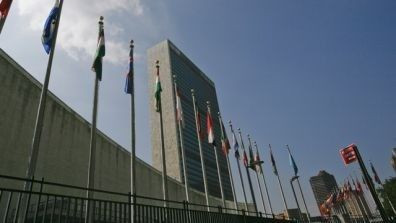Anti-Internet Regulations to be Considered by U.N. Body
International Telecommunication Union to Meet in December

The U.N.-sponsored International Telecommunication Union could pass new anti-Internet regulations by the end of the year, threatening new controls to stifle free speech.
Starting at the end of February, Russia, China and many other countries will gather representatives in Geneva, Switzerland, to rework a 1988 pact that gave rise to the open Internet. At that time, 114 countries gathered to work out an agreement to deregulate the international telecommunications industry, a move that has protected the Internet from widespread destabilization, U.S. Federal Communications Commissioner Robert McDowell wrote in a Wall Street Journal opinion piece Tuesday.
The proposal could include features like new international controls over online security and new regulations on international mobile roaming rates. Those functions are now overseen by a broad network of overseers, and a December meeting in Dubai of the 193 member ITU will work on turning previously unregulated portions of the Internet over to international laws. While many countries would certainly not go along with the new regulations, the result would be a separated Internet of free countries and those bound by the treaty that would stifle innovation, McDowell argued.
Additionally, there are no vetoes in the ITU, so a majority of nations is all that is needed to win support for the new treaty. Although the U.S. may not agree to the treaty in the end, it still has not named an ambassador for the negotiation. One of the most alarming proposals is the possibility of letting foreign phone companies set up a tollbooth for Internet traffic, maybe even on a click-by-click basis for some Web sites.
Let us know in the comments if you think the treaty has a chance of passage.
© Copyright IBTimes 2025. All rights reserved.



















